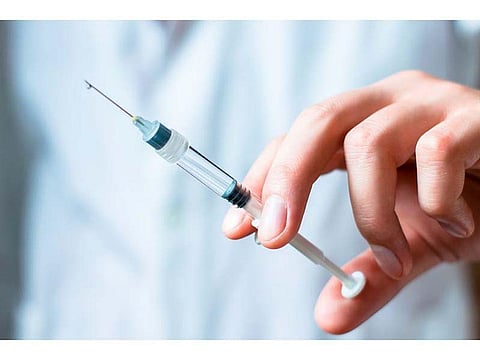FRIDAY, Oct. 8, 2021 (HealthDay News) -- Humoral responses and the effectiveness for protection against SARS-CoV-2 infection decline in the months following vaccination with the Pfizer-BioNTech BNT162b2 vaccine, according to two studies published online Oct. 6 in the New England Journal of Medicine.
Hiam Chemaitelly, from Weill Cornell Medicine-Qatar in Doha, and colleagues estimated vaccine effectiveness from Jan. 1 to Sept. 5, 2021, in Qatar. The researchers found that in the first two weeks after the first dose, estimated BNT162b2 effectiveness against any acute respiratory syndrome coronavirus 2 infection was negligible, increasing to 36.8 percent in the third week after the first dose and peaking at 77.5 percent in the first month after the second dose. Thereafter, effectiveness gradually declined, accelerating after the fourth month to reach 20 percent in months 5 through 7. Effectiveness against any severe, critical, or fatal case increased to 66.1 percent by the third week after the first dose and peaked at 96 percent or higher in the first two months after the second dose; for six months, effectiveness persisted around this level.
Einav G. Levin, M.D., from Sheba Medical Center in Tel Hashomer, Israel, and colleagues conducted a six-month longitudinal study involving 4,868 vaccinated health care workers in Israel who were tested for antispike immunoglobulin G and neutralizing antibodies monthly. The researchers found that the level of immunoglobulin G antibodies decreased at a consistent rate, while a rapid decrease was seen in the level of neutralizing antibodies for the first three months, followed by a slowing of the rate thereafter. Neutralizing antibody titers were significantly lower among men than women (ratio of means, 0.64), among those aged 65 years or older versus 18 to <45 years (ratio of means, 0.58) and among those with versus without immunosuppression (ratio of means, 0.30) at six months after receipt of the second dose.
"As this pandemic continues to evolve, the importance of determining immune correlates of protection after vaccination becomes clearer," Levin and colleagues write.
One author from the Chemaitelly study disclosed financial ties to the pharmaceutical industry. One author from the Levin study disclosed ties to pharmaceutical companies, including Pfizer.
Abstract/Full Text - Chemaitelly
Abstract/Full Text - Levin


